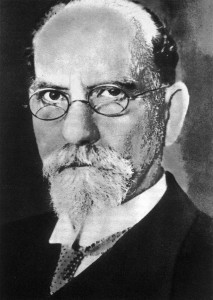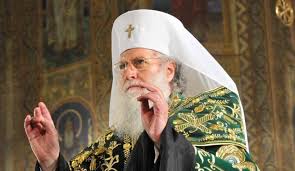
Though I’ve sworn off writing nonfiction, having left that life behind, sometimes the siren song is irresistible, so when I saw a call for papers on the topic of phenomenology and religion, I was tempted. I knocked out a 300-word abstract and sent it in.
The good news is that the abstract and the paper it implies were accepted. The bad news is that now I have to write the paper, which I’ll read at a conference in Berkeley in December, and which will appear as a chapter in a printed book later.
Why did I do it? I’ve been keen on the subject of phenomenology for years. I used to think it was a rigorous method of introspection that could be used for exploration of the mind. As a cognitive psychologist, that has always been my overriding motivation – what is the mind and how can we study it?
 I read philosophical work by Edmund Husserl, the inventor of phenomenology, all translated into English from German, most of it impenetrable. The more I studied, the more I realized phenomenology was a useful method but fundamentally flawed by unexamined assumptions, including essentialism, elementalism, epistemological dualism, scientism, and commitment to sense-data. These limitations prevent it from being a fully successful methodology for examining the mind. It was, and still is, useful in analysis of relatively well-defined problems.
I read philosophical work by Edmund Husserl, the inventor of phenomenology, all translated into English from German, most of it impenetrable. The more I studied, the more I realized phenomenology was a useful method but fundamentally flawed by unexamined assumptions, including essentialism, elementalism, epistemological dualism, scientism, and commitment to sense-data. These limitations prevent it from being a fully successful methodology for examining the mind. It was, and still is, useful in analysis of relatively well-defined problems.
Religion, that’s another thing I’ve been interested in for many years – not so much formal religion defined by churches, but spiritual experience, ranging from Maslow’s “peak-experiences” to William James’s pragmatic psychology of religious experience. I call myself a non-theist rather than an atheist because I don’t know what atheists are trying to deny. But I do believe human beings have a richer experience than standard psychological categories admit, and much of that can be called spiritual or religious experience.
So along comes a conference on phenomenology and religious experience. Who could pass that up? Well, probably most people could. But not me. I succumbed.
 The conference leaders and attendees are intimidating academics and philosophical clergy, most from the Bay Area but some from Bulgaria, of all places, affiliates of Eastern Orthodox Christianity and a conference co-sponsor in Sofia. These people seriously know what they’re talking about, whereas I just have some ideas I developed myself. So I’ll probably get ripped apart at the conference, but I don’t mind. It’s an experience.
The conference leaders and attendees are intimidating academics and philosophical clergy, most from the Bay Area but some from Bulgaria, of all places, affiliates of Eastern Orthodox Christianity and a conference co-sponsor in Sofia. These people seriously know what they’re talking about, whereas I just have some ideas I developed myself. So I’ll probably get ripped apart at the conference, but I don’t mind. It’s an experience.
My paper will point out one flaw in traditional Husserlian phenomenology, its unexamined commitment to epistemological dualism, the intrinsic separation of knower from known. In phenomenology, you keep the object of contemplation at arm’s length, so to speak, and examine it, much as you would study an object perceptually.
Religious experience however, to the extent it can be defined, often involves a sense of non-dualism, the feeling that you are “one with the cosmos,” or not separate from the object of contemplation. So if religious experience is epistemologically nondual, but phenomenology entails dualism, well, they’re incompatible.
But wait! All is not lost. I will offer a fix for this mismatch. I will propose extending the traditional phenomenological method with meditative techniques designed to achieve a nondual state of consciousness. What could be better than that?
The main problem is, I’m not sure I can do that in a way understandable for attendees to a conference committed to both phenomenology and religion. But that’s the creative challenge. I’m also waaay out of touch with current academic literature, so citations and references are going to be hard to come by. But hey, they accepted the paper, so that means they accepted the paper.
Tough as this writing assignment is, it’s still easier than writing fiction, and maybe that’s why I’m doing it. It’s a kind of escapism for me. I’m so bad.
